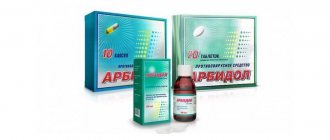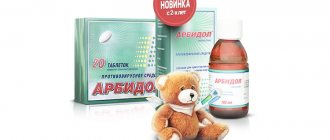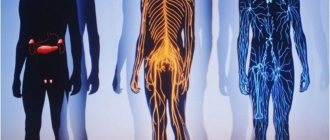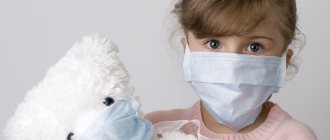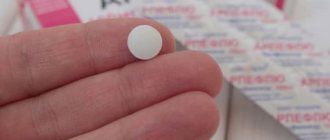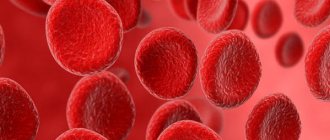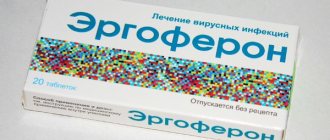The drug Arbidol is an antiviral drug. It has been present on the pharmaceutical market for a long time and has managed to establish itself as an excellent medicine that can be used for both treatment and prevention. In today's situation, doctors are trying to use Arbidol against coronavirus, including the drug in complex treatment.
Pharmacology
The instructions say that Arbidol belongs to the category of antiviral drugs. Once in the human body, it destroys influenza and coronavirus viruses.
The medication reduces the incidence of complications that can be caused by viruses, and also reduces the incidence of exacerbation of bacterial diseases that occur in a chronic form.
The use of the drug can reduce the duration of the disease. Intended for internal use and has virtually no toxic effects. If you adhere to the specified dosage, then no negative reactions will occur.
Once the active component enters the body, it is quickly absorbed from the digestive system. The maximum content is reached after 1.5 hours. Actively disperses throughout organs and tissues.
Metabolism occurs in the liver. The half-life is approximately 18-20 hours. About 45% of the constituent substances are excreted in their original form, most of them with bile, a small amount through the kidneys. In the first 24 hours, about 85% of the received dose of medication leaves the body.
Release form
Arbidol is available in the form of yellow tablets or capsules, in the middle of the capsule there are granules and powder, the color of this mixture varies from pure white to white with a cream or greenish-yellow tint.
Arbidol is available in capsules with the active ingredient of 50 and 100 mg and in tablets with the active ingredient of 100 or 200 mg. Arbidol for children is approved for use from the age of three, since at an earlier age it is difficult for children to take drugs in tablets and capsules. Previously, Arbidol for children was used from the age of two years.
Why take Arbidol
The main indication for use of the product is the treatment of viral diseases. Also used for preventive purposes.
The product is effective for the following diseases:
- ARVI;
- flu;
- bronchitis and pneumonia (as part of complex therapy);
- respiratory syndrome in severe acute form.
The product can also be used to prevent possible complications associated with the appearance and spread of infection after surgery, to stabilize the patient’s immunity.
Efficacy of the drug
To date, the question of the effectiveness of Arbidol remains open. The studies conducted at the start of sales were of questionable design and currently do not meet the standards adopted to confirm the safety of drugs.
However, newer studies are ongoing today, and preliminary results provide some insight into the superiority of Arbidol compared to placebo. If you believe the currently available data, the use of the drug during the fight against influenza and other viral diseases really allows you to quickly eliminate symptoms and speed up the patient’s recovery.
At the same time, studies conducted abroad over the past 10 years show either very low effectiveness of the drug or its absence. The drug molecules are able to bind to a fairly wide range of viruses, but the protective effect of Arbidol is relatively small. For this reason, in America this medicine is not recommended for use during epidemic outbreaks of influenza.
Compound
Medicinal properties are achieved through the active substance – umifenovir. The tablets also contain other components. But these are minor chemicals that do not have a therapeutic effect. Necessary in order to give the drug the desired shape and maintain the necessary properties.
- The capsule form also includes: titanium dioxide, starch, gelatin, dyes, cellulose, calcium stearate.
- The tablets contain: polysorbate, povidone, hypromellose, calcium stearate.
- The powder form consists of sucrose, sweeteners, flavorings (banana or cherry), salt, maltodextrin.
Recommended dosage
Treatment with Arbiol is indicated from the moment when the first signs of influenza or acute respiratory infections (ARVI) are detected, but no later than 3 days from it.
A single dose (SD) depends on the form of release of Arbidol:
| Age | Tablets, 50 mg | Capsules, 100 mg |
| Children from 3 to 6 years old | 1 | — |
| Children from 6 to 12 years old | 2 | 1 |
| Children from 12 years old and adults | 4 | 2 |
Single dose (SD) of suspension:
| Age | Dosage |
| Children 2-6 years old | 10 ml |
| Children 7-12 years old | 20 ml |
| Children over 13 years old and adults | 40 ml |
The dosage regimen is also determined based on the patient’s age, symptoms and established diagnosis. The treatment regimen for Arbidol capsules and tablets is the same; it is important to follow the recommended single dose (RD), taking into account age.
| Purpose | Tablets and capsules |
| Prevention of influenza during an epidemic | 1RD – 2 times a week for 3 weeks |
| Prevention of viral and bacterial infections (ARI and ARVI) after contact with a patient | 1RD – 1 time per day for 10-14 days |
| Treatment of influenza, RVI (ARI) | 1RD – 4 times a day for 5 days |
| Treatment of herpes | 1RD – 4 times a day for 5-7 days, and after another 4 weeks take 1RD twice a week |
| Prevention of postoperative infections (complications) | 1 RD – 2 days before surgery, and then 1 RD on the 2nd and 5th days after surgery |
| Treatment of acute rotavirus intestinal infections |
The suspension intake regimen is as follows:
- prevention of influenza, acute respiratory infections and ARVI - 1 RD - 2 times a week for 20 days;
- prevention of influenza, acute respiratory infections and acute respiratory viral infections after contact with a patient - 1 RD for 14 days;
- treatment of influenza, acute respiratory infections and ARVI - take 1 RD - 4 times a day for 5 days.
It is not recommended to choose a treatment regimen on your own and the dosage form of the drug without consulting a doctor. Arbidol is prescribed based on the results of the examination and tests performed.
An antiviral drug is prescribed with caution in the second and third trimesters of pregnancy, as well as in nursing mothers. Studies have not yet been conducted to determine the permeability of the placenta to umifenovir hydrochloride, as well as the degree of penetration into breast milk.
In cases where, after prescribing an antiviral drug and its use for 3 days for the treatment of ARVI, influenza, symptoms do not subside, the temperature remains 38 ° C or higher, you should consult about the advisability of further taking the drug. If necessary, the therapist or pediatrician will replace Arbidol with another drug.
Reviews
Svetlana, 56 years old: I got a cold, and after my temperature rose, I called a doctor to my house. She listened to me and prescribed Paracetamol and Arbidol. I took pills for a whole week and didn’t notice any improvements, although Arbidol used to help with colds. Vyacheslav, 62 years old: When a cough appeared and the temperature rose, I thought that I had caught a new coronavirus. I read a lot on the Internet about Arbidol, that it helps, so I called a doctor to my house and asked her if maybe I should drink it. I was surprised when the doctor began to dissuade me and prescribed only cough and fever pills. She explained to me that Arbidol does not act on all types of viruses, so there is no chance that it will help. Marina, 48 years old: This is the third day I’ve been taking Arbidol for ARVI, it seems to be getting better, although the temperature still persists, but the cough seems to have become slightly worse. a bit less. The doctor says I need to continue taking the pills and get tested.
Number of application courses
Many infectious pathologies are prone to relapse. But this does not apply to covid 19. This disease occurs once, after its completion a stable immunity is formed. Antibodies remain in the body, so the next time you come into contact with an infected person, the disease will not form again. This means that Arbidol is used only once against coronavirus infection. But they use the entire course prescribed by the attending physician.
There are many other viral pathologies in nature. Among them are ARVI, influenza, herpes, adenovirus, and rotavirus. Arbidol has an effect against all these pathogenic microorganisms. Therefore, after completing treatment for coronavirus infection, it can be used again, but at least 2-3 months must pass, otherwise there may be a risk of viral resistance, which will lead to complications of the pathology, the development of bronchitis or pneumonia.
Arbidol is a potent antiviral drug. Therefore, it is recommended to use it strictly according to the prescribed course of treatment and dosage. Then there will be better effectiveness and influence on the disease. But side effects may occur if the drug is used incorrectly. Therefore, it is better to consult with a therapist, pulmonologist, or infectious disease specialist. Proper treatment is the key to a quick recovery.
The principle of action of the drug
Arbidol demonstrates effectiveness against a number of viruses, including influenza, rotavirus, rhinovirus, coronovirus and others. Its action is to stop the reproduction of viruses in the early stages of their reproduction, as well as to stop the fusion of the virus with the endosome membrane. Thus, viruses cannot infect new cells in the body and spread throughout it.
The effectiveness of the drug does not depend on the current state of the patient’s immune system at the time of administration, as well as the rate of production of interferons in the body, because interferons from the drug immediately after administration enter the systemic circulation and begin to act. However, there are some individual characteristics that may affect the production of new interferons due to their stimulation by the drug.
The drug achieves its greatest effectiveness if it is taken at the first symptoms of the disease, during the prodromal period, when the number of infectious agents in the body is still small. Then the combined action of the human immune system and the immunostimulant can suppress the disease even before its full development.
Analogs
When an infected person exhibits an allergic reaction, the medicine is replaced with an analogue. Antivirals work in a similar way. Among them:
- Kagocel;
- Orvirem;
- Ingavirin;
- Aflubin;
- Anaferon;
- Immunal.
The drug is prescribed by the attending physician. It is forbidden to self-medicate or take medications without the knowledge of a doctor.
How to avoid viral infections
The “entry gate” for viral infections is most often the mucous membranes of the mouth and nose. Infections are transmitted from person to person through microscopic drops of saliva and other bodily fluids, so it is most likely to become infected from a sick person when talking, sharing eating utensils, etc. Most cases of infection occur within family circles or in crowded places.
Viruses surround us most of the time, and some of them are constantly in the tissues of our body, once getting there during a single episode of illness. But the trigger for the onset of the disease is most often a provoking factor - hypothermia or stress, which usually happens to people in the off-season.
In order to reduce the likelihood of illness, you should avoid crowded places during the epidemic, wear a protective gauze bandage, and also avoid sudden changes in temperature - i.e. dress according to the weather. The use of vitamin-mineral complexes will also help the immune system.
It is also useful to get vaccinated against the flu in a timely manner. This does not guarantee protection against the disease, but it significantly reduces the likelihood of infection and allows you to survive the disease with fewer complications than a patient who has not been vaccinated.
General principles of treatment of viral infections
The main difference between a viral infection and a bacterial one is its gradual development. By the consistent increase in symptoms and low temperature, you can immediately understand that the cold was caused by a virus, not a bacterium. In addition, a hallmark of viral diseases is aching pain that can occur in the teeth, head, limbs, and throughout the body as a whole.
If the patient has normal immunity (that is, it is not weakened by a recent illness, chemotherapy or radiation therapy, or immunodeficiency virus), then the infection goes away on its own in 5-7 days. It is only necessary to comply with the conditions that allow the body to function normally:
- observe bed or semi-bed rest;
- eat dietary foods that do not burden the stomach, but provide enough energy;
- drink plenty of fluids to maintain water-salt balance in the body;
- do not lower the temperature if it does not rise above 38 C.
Bed rest is mandatory, because... if it is violated, the patient not only spreads the infection, but also risks developing complications, some of which can be life-threatening.
In addition to immunomodulators, vitamin-mineral complexes and symptomatic agents are involved in the treatment of respiratory viral infections. The most commonly used medications are painkillers, as well as remedies for sore throat, cough, and, if necessary, antipyretics.

